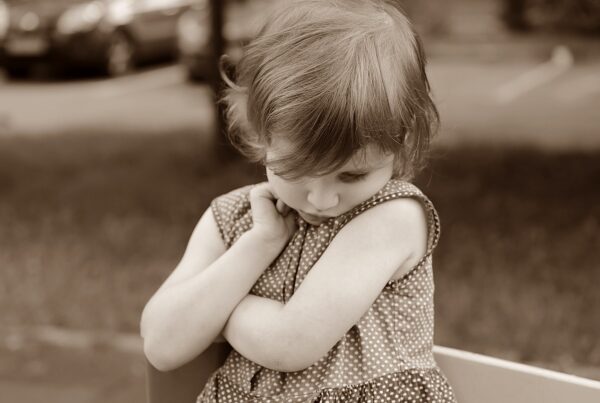Trauma and Adults
The effects on the Brain
Ok you’re going to have to take a deep breath here , I am more than a bit worried about this page, I know there is lots of this information on various sources , but to see them all together might seem a bit overwhelming, go make a nice cup of tea ….if your American get a coffee and put on some nice music ” Alexa play some relaxing classical music”. We’re going to talk about what might happen to the brain development of children who suffered childhood trauma. Ive presumed you have read my post on DNA gene expression , if not don’t worry you won’t get lost.
These are examples of outcomes for some individuals under variable conditions , please don’t presume that all of the following effects you , do not try to self diagnose , always seek advice from your healthcare professional, as said before this is my learning journey , yours might be very different
We saw in a previous post that DNA expression may change but there are other physical problems that may occur , in addition to any inflicted at the time of the abuse ( direct physical trauma ) . The following page are some possible outcomes that some individuals who have faced trauma might suffer from. These outcomes may be affected by other variables such as severity, age or frequency .Studies have shown that the greater the amount or type of trauma , the worse the possible outcome.
Johanna Bick and Charles Nelson 2016 in their excellent paper “Early Adverse Experiences and the Developing Brain” lists some areas of the brain that are physically changed by childhood trauma. I will start off with a quote from their paper to give you a feeling of the severity of this information. ” The sheer number of adverse consequences associated with early- life stressors reinforces the notion that this is a large public health concern, both for individuals and larger society”. We are talking about children in mid-development , their brains and bodies are still growing , their personalities are emerging and they have limited knowledge of the world around them, they are like a puppy is to its owner , totally reliant on their caregivers.
Anything to do with the brain is complex , very complex, it helps me to think of the growing brain like a fast growing and many branched bush . The branches grow off into all directions, Bick and Nelson talk about the brain having grown fast under the genetic instructions , sometimes there is an over production of these branches or synapses and at certain developmental stages these synapses that are unwanted are cut back or pruned if you like.
Bushes when they continue to grow harden those older branches and the brain sort of does this as well , it covers those older synapsis in a fatty sheaf called Myelin . These branches or Axons can now transmit information faster as they are deemed to be important enough not to have been pruned ( I do hope I’m making sense)
Now Bick and Nelson point out that not all areas of the brain cover axons at the same time , some like the prefrontal cortex or some of the parts of the Hyppocampus ( Jabes and Nelson 2015) are covered ( Myelinated) much later , even as long as early adulthood. So these areas are particularly sensitive to childhood trauma or negative environmental input , A paper by T.Araki ,H.Yokota and A Morita in 2017 shows that early brains are watery, when the brain goes through myelination the water content drops , in areas that have yet to be myelinated they are much more vulnerable to traumatic forces . In short , the basic functioning is set in stone first them comes the more complicated ,advanced areas such as how the world relates and affects you, whilst this is going on children are more vulnerable to head trauma .
The American Journal of Psychiatry published a really interesting article2017 ( full details in the citation section) called Association of a History of Child Abuse withImpaired Myelination. Their results were “The results suggest that in child abuse , in part through epigenetic reprogramming of oligodendrocytes (these provide support and insulation to axons by forming the myelin sheath around them)may lastingly. disrupt cortical myelination, a fundamental feature of cerebral connectivity. This really is saying that child abuse probablly causes structural abnormalities in the brain network. One other interesting finding was , in their words “A selective and significant reduction in the thickness of myelin sheaths around small-diameter axons was observed in individuals with a history of child abuse. They further reported that some of the largest axons seemed to increase in size after child abuse , especially between structures such as the amygdala , this likely contributes to altered emotional processing in abused children. These changes together may make impulsivity , aggression or anxiety traits, substance abuse and depression more frequent in adults who experienced abuse . Again this is just one piece of research but I have seen it quoted on many papers
I hope you can see where Im going here , if at this stage a child suffers abuse and is not given the support and care to overcome it then this will become how the brain sees the world and it will make changes to cope with that add to that the brain is far more vulnerable in children.. I know this is a vastly simplified overview , but Im not a scientist and Im going to presume you are not either. There is a reason that the saying ” its not brain surgery you know ” exists , its full on and many have written whole books just on this section.
Scientists are currently researching into other ways trauma can effect the brain and these include smaller or misshaped amygdalas ( it is thought to process threatening and also fearful stimuli) , the possibility of a reduced size of the Hyppocampus ( involved in learning and memory). Possible changes to the prefrontal cortex ( probably involved in decision making, moderating social behaviour and personality expression). Research is also looking into structural changes to the cerebellum size ( controls complex motor functions ) . Still more research is being done on how parts of the brain talk to one another mainly the Hypothalamic-Pituitary-Adrenal pathway also known as HPA and long term childhood trauma is thought to excessively activate this axis , it in effect matures beyond its years in order to cope with the increase in stress exposure. , preventing the rest and digest function to kick in , it is possible that the dis-regulation of the HPA axis may last long term, damaging some important brain structures, perhaps having effects on development placidity and dis-regulating the stress response , in another words your always stressed for no apparent reason. This is another highly complicated area for researchers and new evidence is adding to our understanding all the time.
The only real way to stop this problem is to stop the abuse in the first place , easy talked about harder in fact. Education of the public , professionals , medical , educational as well as social work. We need a more trauma aware society and more trauma informed professional bodies. It’s not just frontline professionals that can pick up on the signs , library assistants , after school clubs , ENT specialists , Occupational and Physiotherapists , coaches , relatives …we all have a responsibility. Once the damage is done its often life long and causes huge financial and social costs to society and of course to individuals involved.
Thank you for spending time on my blog, I know there is a lot os content out there , It means a lot . Im just a childhood trauma survivor looking for answers and bringing you along for the ride ……..

As I keep pointing out this is a highly simplified version and is not all consuming , there are many other areas I haven’t mentioned, for example , loss of executive functioning or the involvement of the left or right side of the brain
. The point here is ,when you feel bad, guilty, depressed , disgusted with yourself , you can’t find the way out of the wood for the trees , please realize it’s not you ,It really is not you, it is a product of real physical changes to your body that have and always have been out of your control. If you were run down by a drunk driver and broke many bones and had long term negative outcomes from that accident , would it have been your fault ? No , it was the driver . You may have been abused , your body has made changes to cope that you have no control over , it is the fault of the abuser , you have had to live with the consequences all your life . This is not to say we should sit back and just accept it , you somehow have functioned , you have coped , but we want more than just coping, we want much more.









